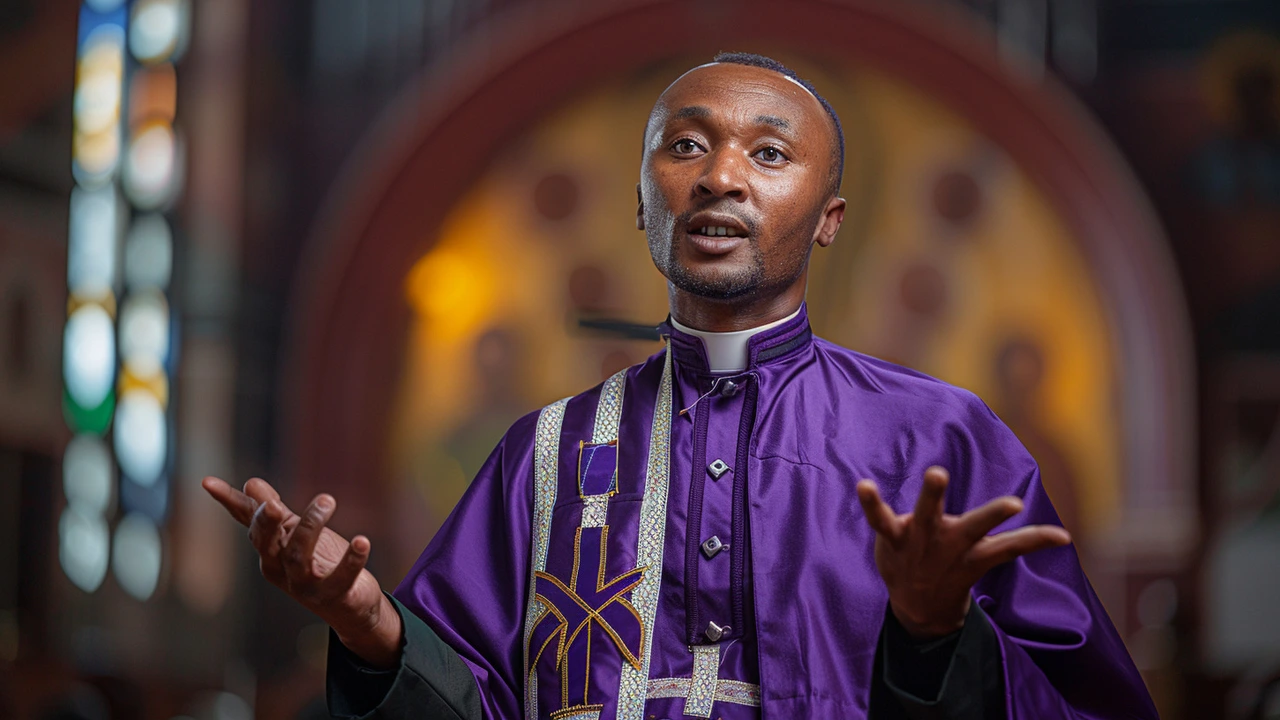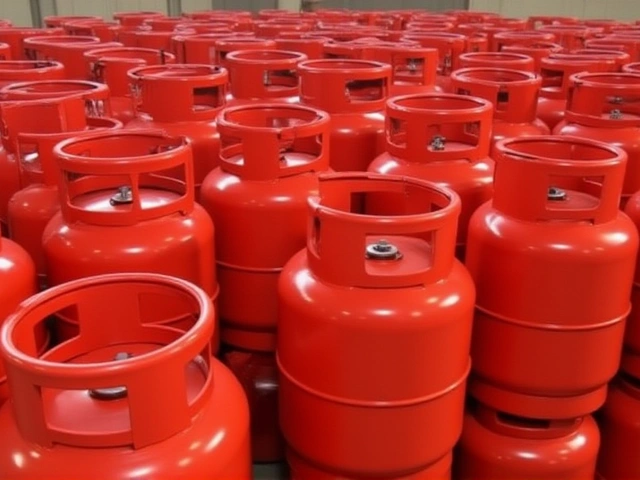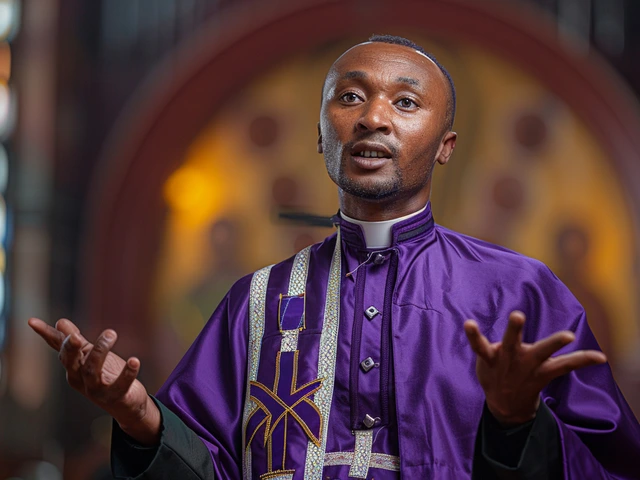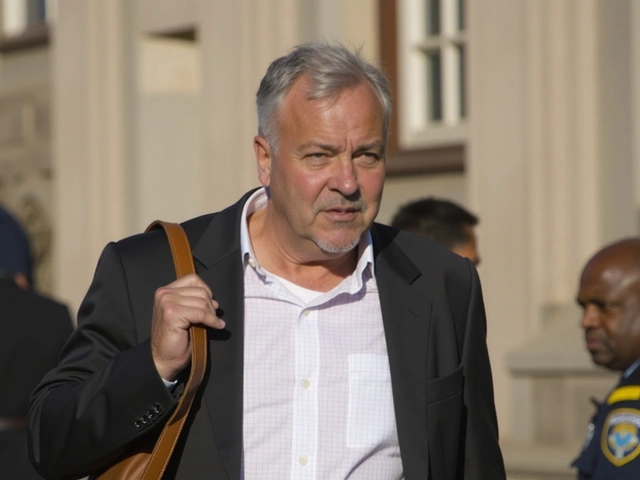
Introduction
Amidst political declarations and policies poised to shape the future, Reverend Father Chinenye Oluoma's critical commentary on President Bola Tinubu's 'renewed hope' agenda emerges as a bold critique of Nigerian political rhetoric. His unconventional comparison of political hope to anaesthetics provides a fresh perspective on the challenges faced by a nation trying to navigate through economic turmoil and societal disparities.
The Concept of 'Renewed Hope'
Hope has invariably been a tool in the arsenal of politicians worldwide, aiming to instill a sense of optimism among the populace during tumultuous times. President Bola Tinubu, upon his election, introduced the 'renewed hope' agenda with the intention to usher in a wave of positive changes across Nigeria. However, the essence of this promise has been contested by voices like Rev. Fr. Chinenye Oluoma, who argue that mere hope is insufficient without substantive actions to address the root causes of societal issues.
Criticism by Reverend Oluoma
Rev. Fr. Oluoma's critique is grounded in the observation of the tangible impact, or lack thereof, of the 'renewed hope' agenda. He argues that hope, much like anaesthetics, serves only to temporarily relieve the pain without treating the disease. His bold analogy points to a deeper discontent with political promises that remain unfulfilled while everyday Nigerians continue to struggle with economic hardship, exacerbated by a weakening naira and soaring commodity prices. Oluoma's outspoken views highlight a fundamental disconnect between political rhetoric and the real-world experiences of the Nigerian populace.
Effects on the Economy and Livelihoods
The reverberating effects of economic policies and the fluctuating strength of the Naira are felt deeply in the markets and homes across Nigeria. With the Naira struggling to stay below N1500 per dollar, the purchasing power of average Nigerians has drastically reduced, leading to an increase in the cost of living. This economic strain is reflected in the tripling and quadrupling prices of basic commodities, placing a heavier burden on families trying to afford essentials like food, housing, and healthcare.
Moreover, the critique extends to the impact of political promises on education and security. The hope offered by the government is seen as insufficient in the face of the urgent need for job opportunities, enhanced security measures, accessible healthcare, and affordable educational resources. These are the sectors where Nigerians are earnestly seeking improvements that go beyond the hope and enter the realm of tangible, life-improving actions.
The Role of Government
Rev. Fr. Oluoma's assertions call into question the role of a government in times of economic and social distress. Should government's role be limited to offering hope, or should it extend to executing concrete policies that address the crises facing its citizens? This question lies at the heart of Oluoma's criticism and forms the basis for a broader debate on the efficacy of political leadership in Nigeria.
Conclusion
In conclusion, while hope is essential, it should complement, not substitute, tangible governmental actions aimed at alleviating the suffering and improving the lives of the people. As Nigeria continues to navigate through these challenging times, the focus must shift from political rhetoric to the implementation of real solutions that address the complex array of economic, social, and security challenges facing the nation.








When Reverend Oluoma likens political hope to an anesthetic, he invites us to contemplate the ethical dimensions of governance. Hope, in his view, is a temporary numbing agent that masks the underlying pain of systemic failure. Yet hope can also be a catalyst for collective resolve if paired with actionable policy. The Tinubu administration’s rhetoric, however, appears more akin to a placebo than a cure. The people of Nigeria deserve more than soothing words; they need measurable interventions. A hopeful narrative that does not translate into concrete improvements borders on disservice. Ultimately, hope must be a bridge, not a veil.
It is evident that the macro‑economic indicators paint a grim portrait of the present circumstances. The depreciation of the Naira below the N1500 threshold has eroded purchasing power across all socioeconomic strata. Moreover, the tripling of staple prices imposes an untenable burden on families striving to meet basic needs. While the administration professes a "renewed hope," the lived experience of many Nigerians suggests a disjunction between promise and practice. One must, therefore, advocate for policies that directly address inflationary pressures and social welfare.
The data on Naira depreciation is incontrovertible.
The discourse surrounding President Tinubu's "renewed hope" agenda has been saturated with rhetorical flamboyance that obfuscates substantive policy analysis. One must interrogate the epistemological foundations of labeling a political platform as "hopeful" without delineating the mechanistic pathways to socioeconomic amelioration. The analogy posited by Reverend Oluoma, wherein hope functions as an anesthetic, is rhetorically potent yet demands rigorous empirical corroboration. In the current macro‑economic climate, the Naira's trajectory beneath the N1500 per dollar benchmark epitomizes a systemic liquidity vacuum that cannot be assuaged by semantic optimism. Moreover, the inflationary spiral-manifested in the quadrupling of essential commodity prices-constitutes a veritable assault on the caloric security of the populace. Such fiscal turbulence necessitates a policy architecture grounded in Keynesian stimulus complemented by prudent monetary tightening, not merely aspirational platitudes. The securitization of hope without concomitant structural reforms risks engendering a political placebo effect, whereby the electorate is lulled into complacency whilst the underlying pathology persists. It is incumbent upon policymakers to transition from symbolic exhortations to the deployment of targeted subsidies, infrastructural investment, and fiscal realignment that address supply‑side constraints. Failure to do so not only undermines public trust but also perpetuates a cycle of disenfranchisement that fuels sociopolitical instability. In essence, the merit of any governmental agenda lies in its capacity to convert ideological optimism into quantifiable welfare gains, a conversion that remains conspicuously absent in the current schema. Consequently, the critique articulated by Reverend Oluoma is not merely theological dissent but a clarion call for evidence‑based governance.
Currency woes hit folks hard
Food prices are skyrocketing
We need real fixes now
The poet in me feels the weight of those hurting families, yet the activist in me demands actionable change. A hopeful narrative is only as strong as the concrete steps that underpin it. Let us rally around policies that lift livelihoods, not just lift spirits.
From a policy lens, hope without execution is a hollow echo. The government must anchor its rhetoric in measurable programs. Only then can optimism translate into tangible progress.
One cannot overlook the lexical gymnastics employed to mask fiscal inertia. The discourse traverses a labyrinth of grandiloquence while sidestepping substantive budgetary allocations. It is imperative that we parse the verbiage with surgical precision. The populace deserves transparency, not obfuscation.
Ah, the elegance with which lofty platitudes are masqueraded as policy-truly a masterclass in rhetorical sleight of hand. One might posit that such linguistic extravagance compensates for the conspicuous absence of any concrete fiscal blueprint. Yet, let us not be beguiled; the rosy veneer merely conceals a deficit of measurable outcomes. In the grand theatre of governance, a well‑crafted speech cannot substitute for actionable deliverables. One must, therefore, demand substance over sonnet.
There's an undercurrent of hidden agendas that the mainstream media conveniently omits. The 'renewed hope' slogan feels like a distraction from covert power grabs. Some say the elite are engineering a financial reset to solidify control. It's as if the nation's hardships are a smokescreen for deeper machinations. The truth, they whisper, is more unsettling than any policy misstep.
Regardless of the narratives, people are feeling the pinch.
Let's keep the conversation grounded in reality.
Hope is a double‑edged sword; it can inspire or imprison.
When hope is weaponized, it becomes shackles.
True liberty demands hope aligned with action.
Wow!!! This whole "renewed hope" thing really hits home!!! 🤯✨
We need real solutions, not just feel‑good slogans!!! 💪🏽🔥
Let’s push for policies that actually lower prices!!! 🙏🏽💡
Stay hopeful, stay active!!! 🚀😁
Oh, the sweet scent of optimism wafting through the corridors of power-how utterly charming. One might wonder if the architects of this agenda ever consulted the very citizens whose wallets are feeling the burn. Perhaps the hope is directed at an abstract future that never materializes. In any case, a dash of reality would be a welcome garnish.
Spare us the poetic fluff; the numbers speak louder than any lyrical hope. Your prose obscures the stark reality of inflation, which is unacceptable. The administration must be held accountable for its euphemistic rhetoric. Stop romanticizing crisis and deliver substantive policy.
Sounds like another political marketing campaign.
Hope's nice, but wallets need relief.
Let's see some real moves soon.